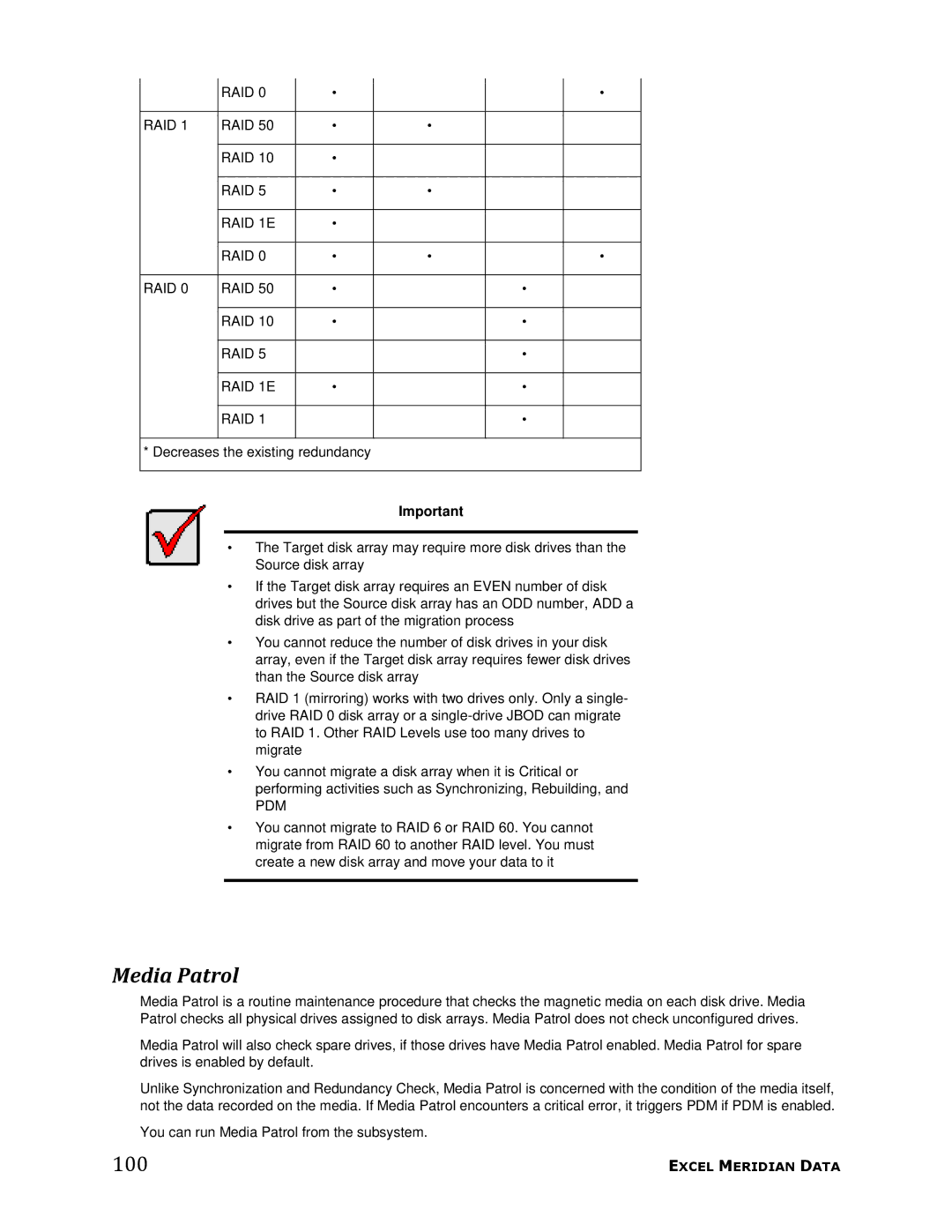
| RAID 0 | • |
|
| • |
|
|
|
|
|
|
RAID 1 | RAID 50 | • | • |
|
|
|
|
|
|
|
|
| RAID 10 | • |
|
|
|
|
|
|
|
|
|
| RAID 5 | • | • |
|
|
|
|
|
|
|
|
| RAID 1E | • |
|
|
|
|
|
|
|
|
|
| RAID 0 | • | • |
| • |
|
|
|
|
|
|
RAID 0 | RAID 50 | • |
| • |
|
|
|
|
|
|
|
| RAID 10 | • |
| • |
|
|
|
|
|
|
|
| RAID 5 |
|
| • |
|
|
|
|
|
|
|
| RAID 1E | • |
| • |
|
|
|
|
|
|
|
| RAID 1 |
|
| • |
|
|
|
|
|
|
|
* Decreases the existing redundancy
Important
•The Target disk array may require more disk drives than the Source disk array
•If the Target disk array requires an EVEN number of disk drives but the Source disk array has an ODD number, ADD a disk drive as part of the migration process
•You cannot reduce the number of disk drives in your disk array, even if the Target disk array requires fewer disk drives than the Source disk array
•RAID 1 (mirroring) works with two drives only. Only a single- drive RAID 0 disk array or a
•You cannot migrate a disk array when it is Critical or performing activities such as Synchronizing, Rebuilding, and
PDM
•You cannot migrate to RAID 6 or RAID 60. You cannot migrate from RAID 60 to another RAID level. You must create a new disk array and move your data to it
Media Patrol
Media Patrol is a routine maintenance procedure that checks the magnetic media on each disk drive. Media Patrol checks all physical drives assigned to disk arrays. Media Patrol does not check unconfigured drives.
Media Patrol will also check spare drives, if those drives have Media Patrol enabled. Media Patrol for spare drives is enabled by default.
Unlike Synchronization and Redundancy Check, Media Patrol is concerned with the condition of the media itself, not the data recorded on the media. If Media Patrol encounters a critical error, it triggers PDM if PDM is enabled.
You can run Media Patrol from the subsystem.
100 | EXCEL MERIDIAN DATA |
